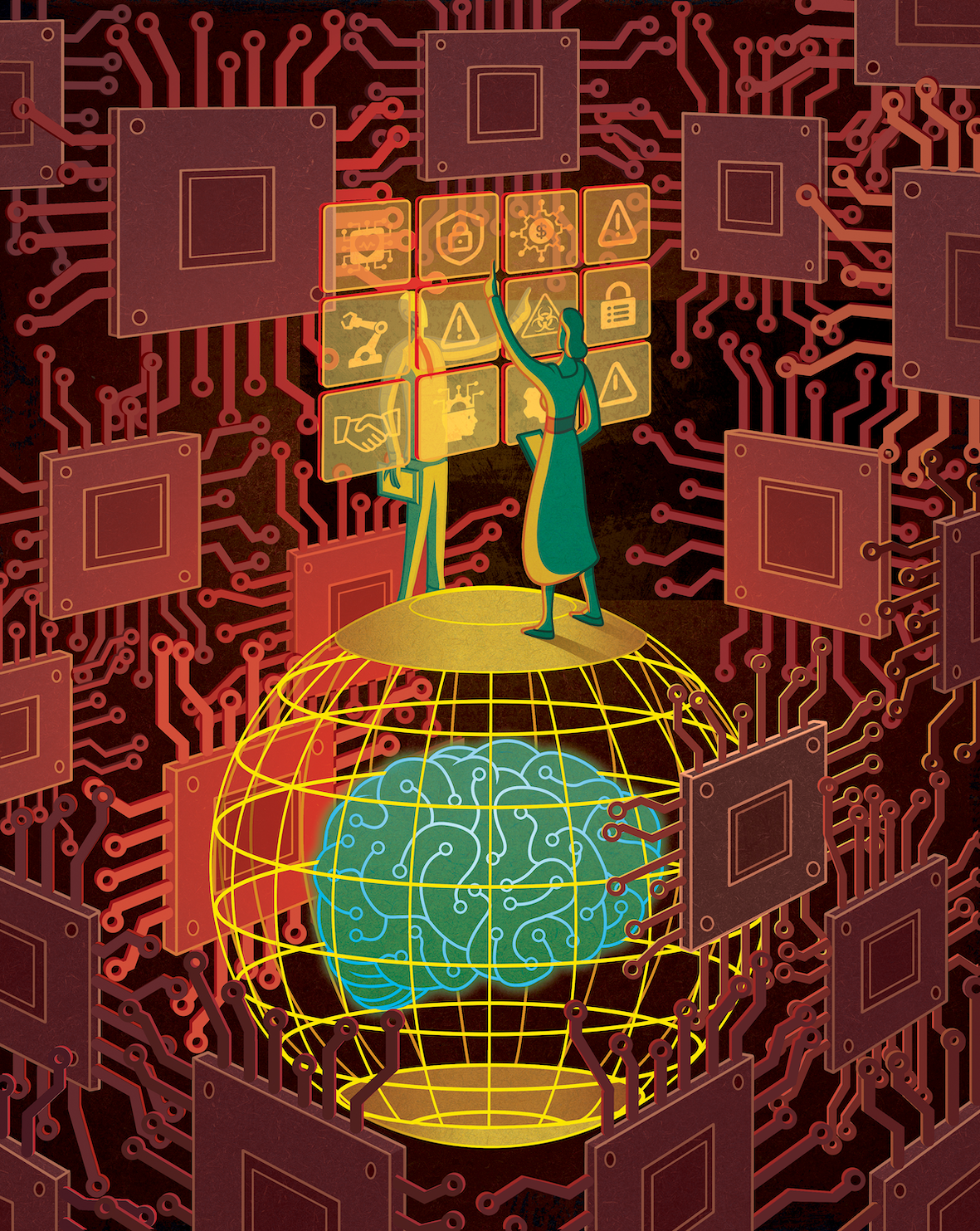When Myanmar re-entered global life in 2011 following decades of isolation under military rule, less than one percent of its population had access to the internet. By 2020 this figure had surged to nearly half. The country had experienced a “leapfrog effect” — jumping from minimal to widespread internet access and use within a decade.
This introduced a range of complex consequences, both beneficial and detrimental. Among the positive effects, it provided access to information and new economic opportunities. However, it also led to the expansion of platforms such as Facebook, which had benign uses but were also terribly exploited to spread hate speech and disinformation, exacerbating ethnic tensions and violence.
Artificial intelligence (AI) is expected to have an even more profound global impact than the introduction of the internet. OpenAI’s newest generative AI model is evidence that at the current pace of development, future generations of AI could be among the most transformative technologies the world has ever seen. Such “advanced AI” systems could be more proficient than humans at tasks such as general problem solving, continual learning, context-specific decision making, flexible memory, reading comprehension, analogical reasoning and critical reasoning — something that could completely transform multiple facets of human life. Indeed, experts anticipate AI will cause dramatic changes across almost every domain of life, including human rights, knowledge, well-being and governance.
As has been the case with other technologies, advanced AI is bound to change the lives of Global South peoples in many of the same ways it will alter the lives of people living in the Global North. However, compared with their northern counterparts, Global South countries seem far less engaged in discussions about the governance of advanced AI.
We believe the scale of risks that Global South countries face is concerning enough for these countries to engage more seriously with the stakeholders and processes that exert most control over the development of advanced AI.
Understandably, these issues consume much of the focus and resources of Global South countries, making it difficult for them to turn to potential risks posed by emerging technologies such as AI.
Although each is different, Global South countries share certain economic realities, such as severely limited access to capital and investment, high levels of poverty and substantial income inequality. Additionally, many share broadly similar socio-political challenges, including recurring violent conflict, weak state institutions and less-educated populations.
Understandably, these issues consume much of the focus and resources of Global South countries, making it difficult for them to turn to potential risks posed by emerging technologies such as AI. But the unfortunate truth is that AI could interact with existing challenges and increase specific risks.
First, advanced AI may lead to a severe devaluation of these countries’ current comparative economic advantage in two ways. To begin, it could undermine the kind of labour that has long been Global South countries’ economic forte (for example, online telemarketing work). Furthermore, Global South countries could receive only a very small share of the benefits of AI development because they are not at the forefront of the technology’s development.
Second, advanced AI could lead to far more damaging armed conflict in these countries. Over the past 40 years, Africa, Asia and the Middle East have consistently recorded the highest number of state-actor conflicts, with Africa peaking at around 31 such conflicts in 2020 alone. These regions have also borne witness to protracted conflicts among non-state actors in decades past. For example, there were more than 50 in Africa in 2017 alone. Advanced AI could make such situations catastrophic by increasing the scale and severity of impacts. In particular, the technology could make weapon systems more autonomous, while increasing the access to and collection of information and strategies that could be used in efforts to eliminate perceived enemies in armed conflicts.
Third, advanced AI has the potential to enable far more enduring and repressive authoritarianism in Global South countries than we have seen to date. Many of these countries have difficult histories of repressive, authoritarian regimes. Despite the wave of democratization since the 1970s, repression has persisted or re-emerged in many of these countries. We think advanced AI could worsen the situation by giving autocratic government officials more sophisticated methods for tracking, harassing and intimidating good-governance activists and for preserving control. For example, repressive governments could deploy autonomous AI agents that can operate indefinitely in a “set it and forget it” manner, to continuously monitor and track dissenting individuals and groups, or even to scour online spaces for opposing views. From there, governments could use these autonomous AI agents to quickly and continuously block information perceived as unfavourable to a regime, exacerbating censorship.
AI developers and researchers have not yet determined a foolproof way to ensure that the most advanced AI models always take actions in line with positive human values.
Fourth, and relatedly, this technology could expose Global South peoples to unparalleled manipulation. Research has already shown that AI can be used to manipulate. Advanced AI will possess high-level reasoning and goal-oriented capabilities and be able to collect troves of personal data. Existing research shows that, possibly due to the inaccessibility of education about technology, Global South peoples have high levels of trust in AI (and technology in general) and lower levels of tech literacy in comparison to global averages. All that could ease social manipulation by those who control the technology.
Fifth, advanced AI could deepen the cultural subordination of Global South peoples. Although Western cultural hegemony has been prevalent for decades through the media and other forms of Western influence, it could be taken several steps further through advanced AI. Recent research by Rohin Manvi et al. shows that large language models are “geographically biased” in consequential ways. Advanced AI could therefore worsen the picture for Global South cultures because, notwithstanding these biases, there will be strong incentives to adopt these technologies. The widespread adoption of such a culturally maladapted technology could slowly substitute Global North values for Global South values.
Finally, AI developers and researchers have not yet determined a foolproof way to ensure that the most advanced AI models always take actions in line with positive human values. Unless this changes before we have advanced AI in the world, there is a chance that such systems could lead to significant loss of human life, possibly up to human extinction. For example, the integration of advanced AI into the critical infrastructure of a country could go terribly wrong if — in pursuance of goals encoded into it by humans, or goals it develops on its own — the advanced AI system takes unexpected steps (like deciding to fire bombs to force peace), which lead to catastrophic outcomes for the populace.
Because of the above potential impacts, it’s not enough for Global South policy makers to focus on the AI we see today. They must look to the future. These countries need to engage on advanced AI as well, especially while it is still being developed. To that end, Global South governments should immediately begin the work of:
- appointing expert study groups, whose focus should not just be AI in general but also advanced AI specifically;
- ensuring that their national and regional policies (and eventually laws) pay special attention to preventing and mitigating the risks that advanced AI could pose to their societies; and
- forming coalitions of like-minded nations and pushing the leading AI companies and Western countries to pay special attention to the potential implications of advanced AI in Global South countries.
Beyond the need for the governments to take action, it’s clear that researchers and civil society in Global South countries can make a significant difference if they begin engaging as well. Their voices and influence could persuade governments, as well as researchers and civil society organizations in Western countries, to ask the leading AI companies more questions. Those who care about the fate of Global South peoples must realize that getting serious about AI generally is not enough. It is crucial that we also get serious about the risks of advanced AI.



